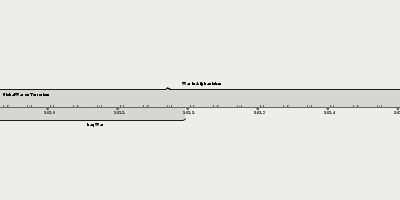30 set 1938 ano - Munich Agreement
Descrição:
The Munich Agreement was reached in Munich on September 30th, 1938, by Nazi Germany, the United Kingdom, France, and Italy. The agreement provided for the German annexation of part of Czechoslovakia called the Sudetenland, where three million people, mainly ethnic Germans, lived. The pact is known in some areas as the Munich Betrayal, because of a previous 1924 alliance agreement and a 1925 military pact between France and the Czechoslovak Republic.Germany had started a low-intensity undeclared war on Czechoslovakia on September 17th, 1938. In reaction, Britain and France on 20 September formally requested Czechoslovakia cede the Sudetenland territory to Germany. This was followed by Polish and Hungarian territorial demands brought on September 21st & 22nd, respectively. Meanwhile, German forces conquered parts of the Cheb District and Jeseník District, where battles included use of German artillery, Czechoslovak tanks, and armored vehicles. Lightly armed German infantry briefly overran other border counties before being repelled. Poland grouped its army units near its common border with Czechoslovakia and conducted an unsuccessful probing offensive on September 23rd. Hungary moved its troops towards the border with Czechoslovakia, without attacking. The Soviet Union announced its willingness to come to Czechoslovakia's assistance, provided the Red Army would be able to cross Polish and Romanian territory; both countries refused.
An emergency meeting of the main European powers–not including Czechoslovakia, although their representatives were present in the town, or the Soviet Union, an ally to France and Czechoslovakia–took place in Munich, on September 29th–30th. An agreement was quickly reached on Adolf Hitler's terms, and signed by the leaders of Germany, France, Britain, and Italy. The Czechoslovak mountainous borderland marked a natural border between the Czech state and the Germanic states since the early Middle Ages; it also presented a major natural obstacle to a possible German attack. Strengthened by border fortifications, the Sudetenland was of absolute strategic importance to Czechoslovakia. On September 30th, Czechoslovakia submitted to the combination of military pressure by Germany, Poland, and Hungary, and diplomatic pressure by Britain and France, and agreed to surrender territory to Germany following the Munich terms.
The Munich Agreement was soon followed by the First Vienna Award on November 2nd, 1938, separating largely Hungarian inhabited territories in southern Slovakia and southern Subcarpathian Rus' from Czechoslovakia. On November 30th, Czechoslovakia ceded to Poland small patches of land in the Spiš and Orava regions. In March 1939, the First Slovak Republic, a German puppet state, proclaimed its independence. Shortly afterwards, Hitler reneged on his promise to respect the integrity of Czechoslovakia by occupying the remainder of the country and creating the Protectorate of Bohemia and Moravia. The conquered nation's military arsenal played an important role in Germany's invasions of Poland and France in 1939 and 1940.
Much of Europe celebrated the Munich Agreement, as they considered it a way to prevent a major war on the continent. Hitler announced that it was his last territorial claim in Northern Europe. Today, the Munich Agreement is regarded as a failed act of appeasement, and the term has become "a byword for the futility of appeasing expansionist totalitarian states."
Adicionado na linha do tempo:
Data:
30 set 1938 ano
Agora
~ 87 years ago
